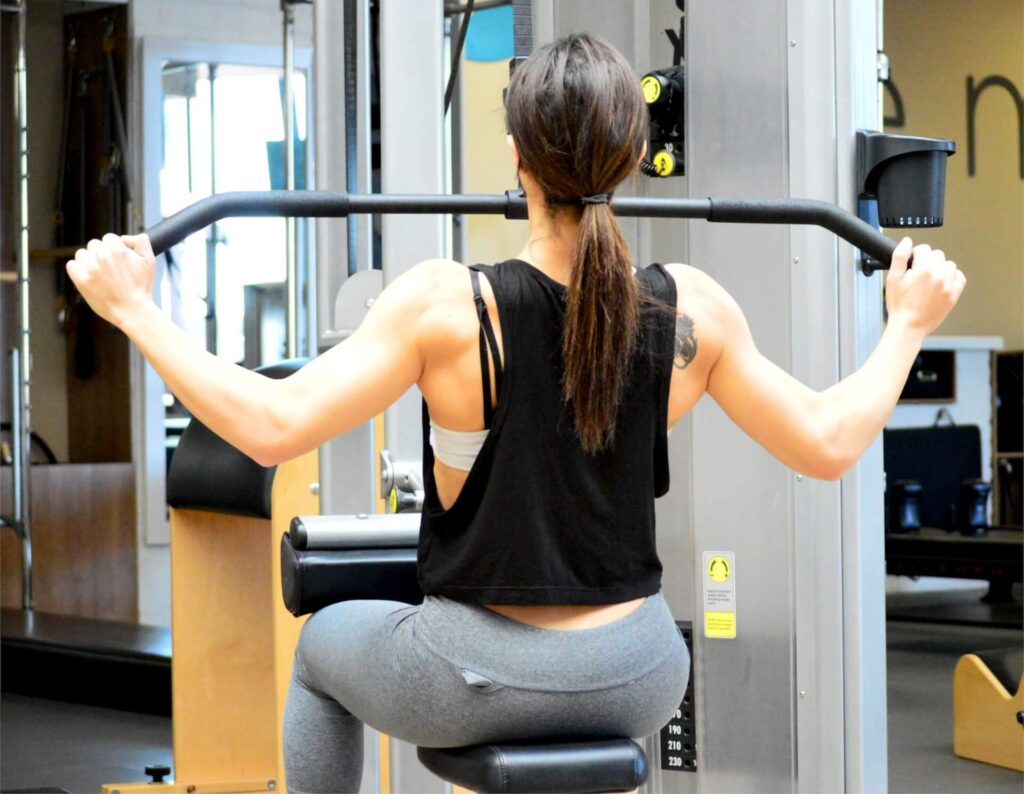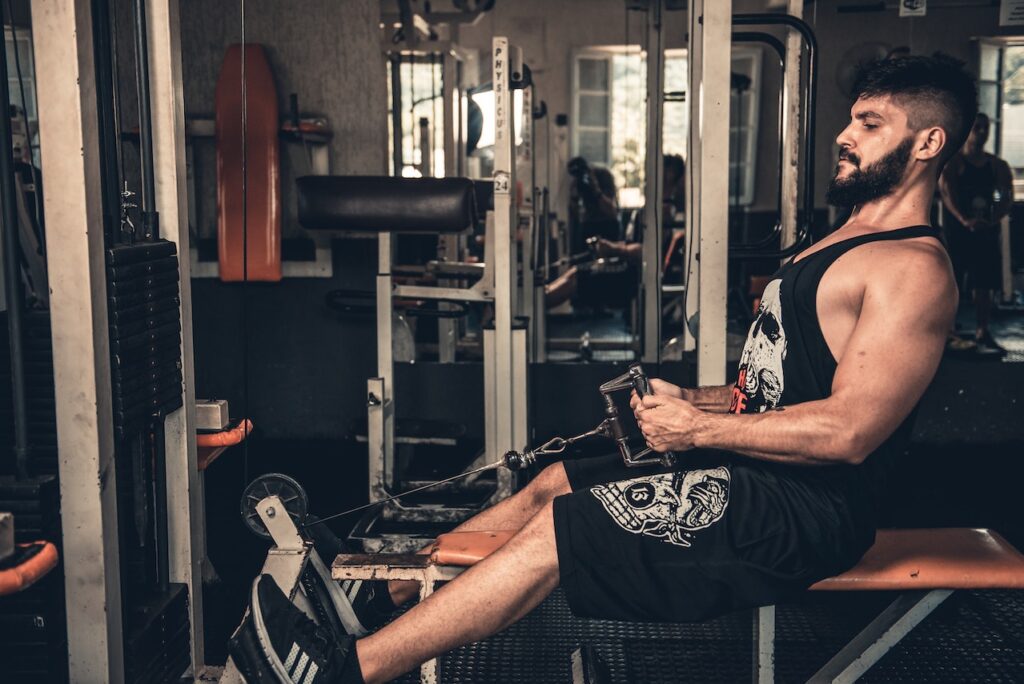Are you tired of crowded commercial gyms with long wait times for equipment? Or maybe you’re looking for a more personalized workout experience. In this blog, we’ll make the comparison of commercial gym vs private gym: the pros and cons and everything inbetween, so you can make an informed decision on which one is the best fit for you and your fitness journey.
From customized workout plans to exclusive equipment, we’ll cover all the factors you need to know before signing up for a gym membership. So, whether you’re a beginner or a fitness enthusiast, read on to find the perfect establishment for you between commercial and private gyms.
What is a Commercial Gym?
So, what is a commercial gym?
If you’ve ever been confused by the term “commercial gym,” we’re here to help. A commercial gym is exactly what it sounds like: a gym that’s available to the public. These gyms are typically open 24/7 and offer a variety of amenities such as weight machines, cardio machines, free weights and mirrors for you to use.
A commercial gym will also have a ton of people coming and going because of how equipped and accessible they are. They might be run by gym franchises, or a wealthy investor might open a gym in a strategic area.
Odds are, most people think of a commercial gym when they first hear the words, “gym.”
Pros of Working Out in a Commercial Gym
Variety of Equipment
Commercial gyms tend to have a wide variety of equipment, from cardio machines to free weights, allowing you to switch up your workouts and target different muscle groups.
If you love to workout, they can also be very exciting to visit because you’ll feel like a kid in a candy store, having to choose between your favorite equipment.
Group classes
Many commercial gyms offer group classes, such as yoga, spinning, and strength training, which can be a fun and motivating way to exercise.
Commercial gyms tend to be built around a tight-knit community and group classes are a great way for you to explore these. They also usually have friendly gym staff that can help you out and become valuable connections outside the gym.
Amenities
Some commercial gyms usually add much needed gym equipment, and as such, have additional amenities such as saunas, steam rooms, and swimming pools, which can enhance your overall fitness experience.
Too many people overlook gym equipment when picking a gym but if you can’t train your favorite exercises, what’s the point?
Convenience
If you’re registered to a commercial gym, odds are that they’ll be open for extended hours, making it easy to fit a workout into your busy schedule. Some are even open for 24 hours, which means you can fit the workouts around your own schedule.
Cost-effective
The commercial gym membership plan is often flexible and you may find pay-as-you-go or month-to-month memberships, which can be more cost-effective than private gyms.
Cons of Working Out in a Commercial Gym
Crowded
During peak hours, commercial gyms can be very crowded, making it difficult to get the equipment you need or find a spot in a group class. This will be quite difficult if you’re claustrophobic or hate being in crowds.
You’ll also have to deal with hurrying through your sets so that others can get a chance to workout.
Limited personal attention
With so many members, commercial gyms may not offer as much one-on-one attention or customized workout plans as private gyms. Even if there are personal trainers on the gym floor, it will be difficult to hold any one’s attention for more than a minute because they have to attend to other members as well.
Unsanitary
With many people using the same equipment, commercial gyms may not always be as clean or sanitary as you would like. If you’re a germaphobe, you’ll have your work cut out for you.
Distractions
With many people around, it can be challenging to focus on your workout, and you may be more likely to be sidetracked by other people’s conversations or activities.
How to Choose a Commercial Gym: 6 Tips

We’ve talked about the pros and cons of a commercial gym. If you decide to sign up to a gym like this, you should focus on finding one with as many pros and as few cons as possible. This list can get you thinking about the right factors.
1. Location
Think about the gym’s location and how close/far it is from your home and work. A gym that is close by will make it more convenient for you to stick to your workout routine.
Unless you have an iron will, it’s much better to pick a gym close by because it makes it easier to achieve your workout goals.
2. Equipment
Take a tour of the gym and check out the equipment they have available. Make sure that the gym has the equipment you need to achieve your fitness goals.
You also want to look out for the state of the equipment. Many commercial gyms are poorly maintained and have machines that are always falling apart. Ensure most of the machines are in top shape before signing the membership contract.
3. Group classes
If you enjoy working out in a group setting, check if the gym offers group classes and what type of classes they have.
If you love crossfit, it doesn’t make sense to sign up to a gym that doesn’t offer crossfit classes, for example.
4. Membership options
Compare membership options and fees. Some gyms offer pay-as-you-go, month-to-month, or yearly memberships. Choose the option that best fits your budget and your commitment level to working out.
A pay-as-you-go commercial gym membership is also a good idea if you want to try out the gym before committing.
5. Customer service
Check the customer service experience of the gym, such as if the staff are friendly, helpful and if they offer any kind of support. This can affect your overall experience at the gym.
If you’re visiting the gym, you may also want to get a feel for the general atmosphere in the gym. Are the members supportive or is everyone trying to one-up each other with their lifts?
If you’re a competent and competitive lifter yourself, the latter might appeal to you. Otherwise, the former may be more your speed.
6. Reviews
Look for reviews from other members and see what they have to say about the commercial gym ‘s equipment, classes, and overall experience. This can give you a good idea of what to expect before you sign up.
Absolutely Fitness has some great tips on how you can get the most out of your gym membership.
What is a Private Gym?
A private gym is a fitness facility that is not open to the general public and is typically only available to members. These gyms are often smaller and more exclusive than commercial gyms, and they offer a more personalized workout experience.
There are many types of gyms that offer an exclusive member experience. Some of them are affiliated to a particular organization and so may not be open to you. The private gyms we’re talking about here are different.
They may be open to you, but you’d have to pass some screening process. Many private gyms also have a cap on the total number of members they can have at any given time. Once they reach that number, they turn away new applicants. It’s also pretty common for private gyms to have a screening process to see if new members are a good fit for them.
Well-equipped private gyms are often the holy grail to lifters. They offer a calm and serene atmosphere where you can focus on your workouts without worry. That’s why for most gym goers, gym equipment is a deal breaker.
Let’s take a closer look at the pros and cons of private gyms and figure out which is better for you.
Pros of Working Out in a Private Gyms
Personalized attention
Private gyms typically have a smaller membership base, which allows for more one-on-one attention from trainers and coaches, making it easy to get personalized workout plans and advice.
You may also easily get assistance from other gym goers because there’s no rush to get through the sets and yield the machine to another gym member.
Exclusive equipment
Private gyms often have exclusive equipment and facilities that may not be available at commercial gyms, such as specialized training areas or private training rooms.
Intimate atmosphere
With fewer members, you may find that you feel more at ease working out in a private studio gym, as opposed to a commercial gym where it can be crowded, noisy, and competitive.
Increased accountability
With a private gym or private training studio, you may have a stronger sense of accountability to your fitness journey as you may be paying more for the membership, and the gym will be more exclusive.
Your accountability can also come from other members because many private gym arenas allow you to build relationships and gain new workout partners that will keep you motivated and accountable.
Flexibility
Most private gyms offer flexible hours of operation, which can be more convenient for those with busy schedules.
If you’re paying for an expensive private gym subscription, you should also be particular about getting as many perks as are available, including, of course, workout flexibility.
Cons of Working Out in a Private Gym

Higher cost
Commercial gyms usually cost around $500 per year, while private gymscan go as high as $3000 per year. Private gyms make up for the low memberships by raising their fees. They may also have additional costs for personal training or specialized classes.
Limited class options
Because they have so few members, private gyms may not offer as many classes as commercial gyms. This could affect you in two ways.
First, they may not offer the classes you want, forcing you to adapt. Secondly, classes at private gyms tend to be less frequent, which means you might get fewer opportunities to workout.
Private gyms may not offer the same variety of group classes as commercial gyms, which can be limiting for those who enjoy working out in a group setting.
Limited access
As the membership is limited, the gym may not be open to the general public, which can be a disadvantage if you want to invite your friends or family to workout with you.
How to Choose Private Gym: 5 Tips

1. Goals and needs
Consider your fitness goals and needs when choosing a private gym. Look for a gym that specializes in the type of training or equipment you’re looking for and that has trainers or coaches with the necessary expertise.
2. Personal training
If you’re interested in personal training, check if the private gym offers this service and at what cost. Also, ask about the qualifications and experience of the trainers.
A personal trainer can help structure your workouts and make your goals easier to achieve. Having them on-ground can be a massive perk.
3. Membership fees and options
Compare the membership fees and options of different private gyms. Some private gyms may have higher fees, but they may also have additional services included, such as or nutritional counseling or a members-only spa
Decide if those are the perks you’re looking for and if they are worth the additional fee.
4. Amenities and atmosphere
Take a tour of the private gym and check out the amenities and atmosphere. Make sure the gym is clean, well-maintained, and has a comfortable atmosphere.
You also want to get a feel for the overall vibe of the gym. Is this somewhere you’ll enjoy working out at? Or do you think a different gym vibe might be better for you?
5. Referrals and Reviews
You cannot go wrong with referrals and online reviews. Ask for referrals from friends or family members who have experience with private gyms. Also, look for online reviews from previous members to get a better understanding of their experiences.
You also want to research the gym’s reputation and check if they have any certifications, awards or if they are known for a specific discipline of training. This can give you an idea of their level of professionalism and expertise.
Check out Purelife’s post on why a private gym might be a good idea for you.
Commercial or Private Gym: Which Should You Choose?

In conclusion, both types of gyms – commercial and private gyms – have their pros and cons, and the best option for you will depend on your individual needs and goals.
Commercial gyms offer a wider range of classes, equipment, and amenities at a more affordable price, while private gyms offer a more intimate setting, personalized attention, and exclusive equipment.
When choosing a gym, consider your goals, budget, schedule, and personal preferences. Take the time to research and visit different gyms, and don’t hesitate to ask questions and compare options. With the right gym, you’ll be well on your way to reaching your fitness goals and living a healthier lifestyle.
